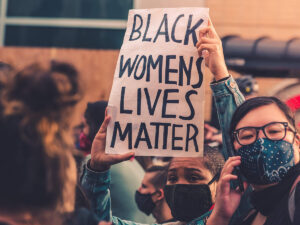
March 15, 2018; New York Times and the Washington Post
James Levine, the Metropolitan Opera’s music director for 40 years until 2016 and who had retained the position of artistic director for the Met’s young artist program, was fired after a “thorough investigation” by outside counsel. Former US attorney Robert J. Cleary found “credible evidence” of sexual misconduct. This action comes now after years of ignoring similar charges.
In a statement published last Monday on the organization’s website, the Met announced that the “the investigation uncovered credible evidence that Mr. Levine had engaged in sexually abusive and harassing conduct both before and during the period when he worked at the Met. The investigation also uncovered credible evidence that Mr. Levine engaged in sexually abusive and harassing conduct towards vulnerable artists in the early stages of their careers, over whom Mr. Levine had authority. In light of these findings, the Met concludes that it would be inappropriate and impossible for Mr. Levine to continue to work at the Met.”
Levine’s firing ended a relationship between the Met and Mr. Levine that dated back to the 1970s. For the Met, whose annual operating budget exceeds $300 million, Levine’s star power and artistic brilliance were key assets in strengthening their reputation, keeping their house full, and supporting ongoing fundraising. Levine, of course, was very well paid and could flex his artistic muscles on the stage of the nation’s leading opera company.
While they both profited, stories of Levine’s misconduct had circulated for decades. According to the New York Times, “Johanna Fiedler, who was the Met’s press representative for 15 years, wrote about them in her 2001 book, Molto Agitato: The Mayhem Behind the Music at the Metropolitan Opera. ‘Starting in the spring of 1979, these stories came to the surface at more or less regular intervals. Each time, the Met press office would tirelessly point out the cyclical nature of the gossip and the complete lack of substance.’” Levine’s regular strenuous denials seemed sufficient for the Met’s board and management to discount them and take no action.
In 2016, a former student formally accused Levine of sexual misconduct, launching an investigation by the police of Lake Forest, Illinois. The student had initially reached out to a member of the Met’s board, who referred him to the police. Met General Manager Peter Gelb acknowledged in last December’s announcement that the Met was investigating the charges that “this first came to the Met’s attention when the Illinois police investigation was opened in October of 2016.”
Sign up for our free newsletters
Subscribe to NPQ's newsletters to have our top stories delivered directly to your inbox.
By signing up, you agree to our privacy policy and terms of use, and to receive messages from NPQ and our partners.
At the time, Jim said that the charges were completely false, and we didn’t hear anything further from the police. We need to determine if these charges are true and, if they are, take appropriate action. We will now be conducting our own investigation with outside resources.
Like many nonprofit organizations, the Met’s leadership has long had this problem before them. The current investigation corroborated many charges which, as Fiedler wrote about in 2001, date back to 1979. News reporters have since uncovered multiple cases of similar misconduct before and after he began to work at the Met. Yet it was only in 2017 that the Met chose to publicly acknowledge them as worthy of investigation. What kept them from acting earlier?
Levine’s star power and his vigorous denials surely made the stakes quite high: “As understandably troubling as the accusations noted in recent press accounts are, they are unfounded. As anyone who truly knows me will attest, I have not lived my life as an oppressor or an aggressor.” For the Met’s leadership, going forward meant risking alienating Levine and the donors and fans who revered what he brought to the Company. With a $300 million budget to fund, that apparently weighed higher than defending those he abused.
Thankfully, in this #MeToo era, the equation has changed. Within days of his firing, Levine sued the Metropolitan Opera for more than $5 million in damages, accusing the organization and its leadership of “cynically hijacking the goodwill of the #MeToo movement [and] brazenly seizing on these allegations as a pretext to end a longstanding personal campaign to force Levine out of the Met.” But a lawyer for the Met “said Levine wasn’t the victim of a vendetta but a man fired because of ‘credible and corroborated evidence of sexual misconduct.’”
The Met stood tall and acted decisively. Even the cost of having its previous inaction become public was judged to be less harmful than remaining silent. In this, they are teaching every nonprofit organization a powerful lesson: The times have changed. Charges that were once dismissed out of hand because of the power imbalances of those involved need today to be reexamined. Even if there is no action to be taken, organizational leaders, boards, and staff have much to gain from that process.
The questions that demand our focus are: What would you do today? What stopped us from acting then that will not stop us now? How would you manage the fallout? They deserve to be on every nonprofit board’s agenda.—Martin Levine












